Updated date: 05/17/2025 05:10:00
On May 16, at the Government Headquarters, immediately after the 4th Joint Cabinet Meeting between the Government of Vietnam and the Government of the Kingdom of Thailand, Prime Minister Pham Minh Chinh and Thai Prime Minister Paetongtarn Shinawatra met with the press, announced the results of the Joint Cabinet Meeting between the two Governments and announced the two countries upgrading their relations to a Comprehensive Strategic Partnership. Dong Thap Newspaper respectfully introduces the full text of the Joint Statement.

Prime Minister Pham Minh Chinh and Thai Prime Minister Paetongtarn Shinawatra announced that Vietnam and Thailand have upgraded their relations to a comprehensive strategic partnership, May 16, 2025 (Photo: VNA)
1. Since the establishment of diplomatic relations in 1976, Vietnam and Thailand have built a good and comprehensive relationship on the basis of mutual trust and understanding. The Vietnam - Thailand Strategic Partnership established in 2013 has contributed to deepening bilateral cooperation in all fields, bringing practical benefits to the two countries and peoples.
2. Common interests and aspirations for peace, independence, self-reliance, a common vision of security, prosperity, sustainable development, and compliance with international law, including the United Nations Charter, are the solid foundation for the ever-growing bilateral relationship.
3. In order to bring the bilateral relations between Vietnam and Thailand to a new height, His Excellency Pham Minh Chinh, Prime Minister of the Socialist Republic of Vietnam and Her Excellency Paetongtarn Shinawatra, Prime Minister of the Kingdom of Thailand, jointly announced the upgrading of bilateral relations to Comprehensive Strategic Partnership at the 4th Vietnam - Thailand Joint Cabinet Meeting, on the occasion of Her Excellency Paetongtarn Shinawatra's official visit to Vietnam from May 15 - 16, 2025. This reflects the common expectation for an increasingly deep and comprehensive cooperative relationship between the two countries.
4. By declaring the establishment of a Comprehensive Strategic Partnership, the two countries pledge to further consolidate and enhance all areas of cooperation, on the basis of respect for international law as well as each other's independence, sovereignty, territorial integrity, common interests and political institutions.
5. On that basis, the two countries agreed to open a new chapter of the Vietnam - Thailand Comprehensive Strategic Partnership for peace, stability and shared prosperity with the substantive pillars of (1) Partnership for Sustainable Peace, (2) Partnership for Sustainable Development, and (3) Partnership for a Sustainable Future.
PARTNERSHIP FOR SUSTAINABLE PEACE
Deepen political, defense and security cooperation
6. The two sides agreed to continue to further enhance trust between the two countries through delegation exchanges and cooperation at all channels of the Party, State, Government, National Assembly, People, localities and enterprises; including organizing annual meetings between the two Prime Ministers in Vietnam, Thailand or at multilateral conferences.
7. The two sides agreed to develop an Action Program to implement the Vietnam - Thailand Comprehensive Strategic Partnership for the period 2025 - 2030 in accordance with the new situation and on the basis of the Action Program to implement the Enhanced Strategic Partnership for the period 2022 - 2027. The two sides also committed to effectively implementing the Cooperation Agreement between the National Assembly of Vietnam and the House of Representatives of Thailand signed in December 2023 to create a legal foundation to promote cooperation between the two countries.
The two sides also agreed to continue to effectively implement bilateral cooperation mechanisms such as: Joint Cabinet, Joint Committee on Bilateral Cooperation, Defense Policy Dialogue, High-level Dialogue on Crime Prevention and Security Issues, Joint Working Group on Politics and Security, Political Consultation.
8. The two sides agreed to promote cooperation between the two Ministries of National Defense and the two countries' armed forces, including the navy, air force and coast guard, through joint patrols, sharing of professional experience, education and training, exchange of intelligence and officer exchanges. The two sides also agreed to expand new areas of cooperation such as defense industry, military medicine, search and rescue and law enforcement at sea.
9. The two sides reaffirmed their commitment not to allow any individual or organization to use the territory of one country to conduct activities against the other. The two sides agreed to further strengthen cooperation in the field of security; coordinate in the prevention and combat of transnational crimes including drug trafficking, illegal immigration, human trafficking, arms smuggling, terrorism, money laundering, international economic crimes, high-tech crimes and environmental crimes. The two sides also agreed to closely coordinate in the prevention and combat of illegal, unreported and unregulated (IUU) fishing.
10. The two sides agreed to strengthen cooperation in the legal and judicial fields; committed to effectively implementing the agreements signed between the two countries on crime prevention and control, transfer of sentenced persons and cooperation in the execution of criminal sentences. The two sides also agreed to continue to cooperate closely in negotiating the Extradition Agreement and the Agreement on Mutual Legal Assistance in Criminal Matters; and to study and amend and supplement the Agreement on Bilateral Cooperation to eliminate human trafficking, especially women and children, and to assist victims of trafficking signed in 2008.
The two sides pledged to effectively implement the Memorandum of Understanding on Cooperation between the Ministry of Justice of Vietnam and the Ministry of Justice of Thailand signed in 2015; further enhance mutual support and assistance at multilateral forums on law and justice; and study the possibility of signing other appropriate cooperation agreements to create a favorable legal corridor for cooperation in crime prevention and combat between law enforcement forces of the two countries.
Promote multilateral, regional and international cooperation
11. The two sides agreed to promote cooperation between the two countries at regional and international forums, including the United Nations (UN), the World Trade Organization (WTO), the Asia-Pacific Economic Cooperation (APEC), the Asia-Europe Meeting (ASEM) as well as parliamentary forums, especially on common issues of peace and security, international peacekeeping, humanitarian relief, sustainable development and response to global challenges.
12. Both sides agreed to maintain close cooperation and consultation within ASEAN and ASEAN-led mechanisms. Both sides committed to promoting ASEAN unity, centrality and efforts to advance the ASEAN Community building process, including the development and realisation of the ASEAN Community Vision 2045 and its Strategic Plans.
The two sides also pledged to strengthen cooperation in areas that are drivers of economic growth and sustainable development such as digital transformation, energy transformation, green economy, circular economy, etc., as well as responding to emerging regional and international challenges. The two sides stressed the importance of strengthening ASEAN's role in sub-regional development, especially the Mekong Sub-region.
13. The two sides affirmed their commitment to strengthening coordination in Mekong sub-regional cooperation mechanisms such as the Ayeyarwady-Chao Phraya-Mekong Economic Cooperation Strategy (ACMECS), the Mekong River Commission (MRC), the Greater Mekong Sub-region (GMS) and other Mekong cooperation frameworks for a resilient and sustainable Mekong Sub-region.
The two sides agreed to promote the combination, complementarity and connectivity between sub-regional cooperation frameworks and the ASEAN Community building process, thereby contributing to narrowing the development gap and promoting the comprehensive development of ASEAN.
The two sides also committed to cooperate in responding to transnational challenges, including but not limited to effective and sustainable management, protection and use of water resources, climate change, haze pollution and food security. The two sides agreed to explore trilateral cooperation possibilities with other countries in the Mekong Sub-region in areas of common interest.
14. The two sides agreed to coordinate with each other and with other countries in and outside the region to promote peace, stability, security, safety and freedom of navigation and aviation in Southeast Asian waters, especially in the East Sea, thereby reaffirming ASEAN's consistent stance on the East Sea.
The two sides affirmed the importance of and called for restraint in carrying out activities that could complicate or escalate tensions, affecting peace and stability.
The two sides stressed the need to avoid actions that may further complicate the situation, calling for the peaceful resolution of disputes, without resorting to the threat or use of force, in accordance with international law, including the 1982 United Nations Convention on the Law of the Sea (UNCLOS), on the basis of full respect for legal and diplomatic processes. The two sides reaffirmed that the 1982 UNCLOS provides the legal framework within which all activities at sea and in the oceans are regulated.
The two sides reaffirmed their support for the full and effective implementation of the Declaration on the Conduct of Parties in the East Sea (DOC), while promoting a favorable environment towards the early adoption of an effective, substantive Code of Conduct in the East Sea (COC) in accordance with international law, especially the 1982 UNCLOS.
PARTNERSHIP FOR SUSTAINABLE DEVELOPMENT
Strengthening economic cooperation
15. The two sides agreed to promote close cooperation mechanisms between Governments and Governments, between organizations, localities and enterprises to increase trade and investment flows. The two sides committed to promoting connectivity between the two economies through cooperation and mutual support to promote economic strength, in the spirit of “mutually beneficial cooperation and mutual development”.
16. The two sides acknowledged each other's role as leading trade partners and committed to strengthening cooperation to reduce trade barriers, towards more balanced and mutually beneficial bilateral trade. The two sides strive to achieve the two-way trade turnover target of 25 billion USD as agreed by the leaders of the two countries, and promptly set new goals in the coming time.
In the field of trade defense, the two sides committed to conducting investigations on the principles of objectivity, transparency, fairness, compliance with the laws of each country and in accordance with the commitments of the World Trade Organization (WTO). The two sides also agreed to enhance cooperation and information exchange on issues of concern between the two countries in this field.
17. Both sides encourage enterprises of each country to expand investment and long-term business in the other country's market. Both sides commit to cooperate and support each other to participate more deeply in the value chain and enhance sustainable business activities. Both sides aim to create a friendly business environment to mitigate the impact of current global trade tensions.
18. The two sides agreed to strengthen cooperation in the fields of labor, employment and social security, including the early signing of a new Memorandum of Understanding on labor cooperation between Vietnam and Thailand and the Agreement on Recruitment of Vietnamese Workers to Work in the Kingdom of Thailand.
19. The two sides encouraged close coordination and cooperation between relevant agencies of the two countries, especially in areas of cooperation such as transport, customs, finance and banking to further facilitate trade, transport and movement of goods between the two countries and to third countries, especially at border gates. The two sides agreed to share experiences and promote cooperation between the central banks of the two countries, especially in the areas of cross-border payments, banking inspection and supervision and financial innovation.
20. The two sides agreed to effectively utilize economic frameworks and free trade agreements to which both countries are members, including the ASEAN Trade in Goods Agreement (ATIGA) and free trade agreements between ASEAN and its partners such as the Regional Comprehensive Economic Partnership (RCEP). The two sides committed to cooperating to implement the ASEAN Vision on the Indo-Pacific and the APEC Putrajaya Vision 2040 to bring practical benefits to localities, businesses and people.
Effectively implementing the "Three Connections" Strategy to promote socio-economic development in each country
21. With the establishment of the Joint Working Group, the two sides agreed to take advantage of the transformation trend of global production and supply chains to enhance supply chain connectivity between the two countries, especially in areas that can complement and benefit each other such as agriculture, petrochemicals, machinery equipment, electronic components and logistics. The two sides also aim to form new supply chains in areas where both sides have potential and strengths.
22. The two sides agreed to connect local and grassroots economic sectors, especially among micro, small and medium enterprises (MSMEs), as well as start-up projects, to further promote cross-border economic cooperation activities.
The two sides also agreed to seek measures to facilitate local goods from both countries to access each other's markets, including mutual recognition agreements for products under Thailand's One Locality One Product (OTOP) program and Vietnam's One Commune One Product (OCOP) program.
The two sides pledged to enhance connectivity through multimodal transport and logistics links within the sub-region. They also agreed to enhance cooperation between localities to stimulate cross-border economic activities along the East-West Economic Corridor and the Southern Economic Corridor.
23. The two sides agreed to explore cooperation potentials to effectively connect the green and sustainable development strategies of the two countries, especially connecting Vietnam's National Strategy on Green Growth for the 2021-2030 period with Thailand's sustainable development strategy, aiming to bring the two economies towards a common cooperation platform in potential areas such as green economy, digital economy, digital transformation, equitable energy transition, climate-smart agriculture, eco-tourism, and response to climate change challenges.
The two sides will share experiences to develop a cooperation model to promote green transformation towards a low-carbon economy, even achieving the goal of net zero emissions.
PARTNERSHIP FOR A SUSTAINABLE FUTURE
Promoting cooperation in science, technology and innovation
24. The two sides agreed to promote cooperation in science, technology and innovation, including sharing information and experience in developing innovation ecosystems and connecting innovation start-up networks between the two countries, towards future application and commercialization.
25. The two sides pledged to strengthen digital economic cooperation, focusing on potential areas such as international payments, e-commerce, and digital financial services, thereby contributing to further facilitating trade, investment, tourism, and financial integration between the two countries and in the region.
26. The two sides agreed to strengthen cooperation, share knowledge and experience in policy making, legal documents, development strategies and management in specialized fields such as artificial intelligence (AI), digital transformation, e-government, digital economy, cybersecurity and smart cities.
Further deepen mutual understanding and friendship between the peoples of the two countries, especially the young generation.
27. The two sides pledged to coordinate in implementing activities to celebrate important milestones in bilateral cooperation, including the 50th anniversary of the establishment of Vietnam-Thailand diplomatic relations in 2026.
28. The two sides agreed to promote people-to-people exchanges, especially more frequent exchanges between the young generations of the two countries, through activities in the fields of education, culture, business, language and environment, to enhance mutual understanding, close friendship and clearer awareness of cooperation and sharing the future between the people, the young generations and between the two countries.
29. The two sides agreed to further strengthen cooperation in education and training; continue to promote and expand models of teaching Thai and Vietnamese languages in each country; encourage the establishment of language, cultural and educational centers of one country in the other; and increase the exchange of lecturers, students, teachers and pupils between schools and universities of the two countries.
30. The two sides agreed to work closely with other relevant countries to promote the implementation of Thailand's proposal on intra-regional connectivity, to facilitate smooth travel and attract more tourists from outside the region under the “Six Countries, One Destination” initiative.
The two sides also agreed to encourage the opening of more direct flights between localities of the two countries, in order to develop tourism in both countries, enhance people-to-people exchanges and enhance connectivity in the Mekong Sub-region.
31. The two sides agreed to cooperate in preserving cultural values and promoting cultural exchanges, including maintaining cultural sites such as President Ho Chi Minh historical relics, Vietnamese pagodas and Vietnam Street as symbols of friendship and cooperation between the two countries. The two sides also agreed to support the organization of exchanges of Vietnamese Buddhist delegations between the two countries.
32. The two sides supported close cooperation between relevant agencies of the two countries, including the Thailand International Cooperation Agency (TICA) of the Ministry of Foreign Affairs of Thailand and the Ministry of Finance of Vietnam, towards the Sustainable Development Goals (SDGs) and expanding Thailand's development cooperation projects.
The projects include the Sustainable Community Development Project based on the application of the Sufficiency Economy (SEP) Theory in Thai Nguyen and Ben Tre provinces, the Thai Language Development and Thai Studies Project, as well as the sending of five Thai volunteers to work as Thai language teaching assistants at four Vietnamese universities under the Friends from Thailand program.
33. The two sides agreed to make the most of the twinning frameworks between the two countries' provinces and cities, including promoting regular delegation exchanges, organizing forums and conferences for direct cooperation between provinces in a practical and sustainable manner, in order to promote local strengths and products, as well as to enhance deeper cooperation at the local level with localities.
34. Both sides pledged to create favorable conditions for citizens of one country to live, work and study in the other country. Both sides also pledged to support the active role of the Vietnamese community in Thailand and the Thai community in Vietnam in fostering solidarity between the peoples of the two countries.
The two sides agreed to continue promoting the role and contributions of the Vietnam - Thailand Friendship Association, the Thailand - Vietnam Friendship Association, the Vietnam - Thailand Friendship Parliamentarians' Group, the Thailand - Vietnam Friendship Parliamentarians' Group, and other Thai - Vietnamese associations to enhance understanding, friendship and cooperation between the people of the two countries.
This text is published on May 16, 2025, made in two originals in the English language, each of which is equally authentic.
According to NDO
Source: https://baodongthap.vn/chinh-tri/tuyen-bo-chung-ve-viec-nang-cap-quan-he-len-doi-tac-chien-luoc-toan-dien-giua-viet-nam-va-thai-lan-131506.aspx


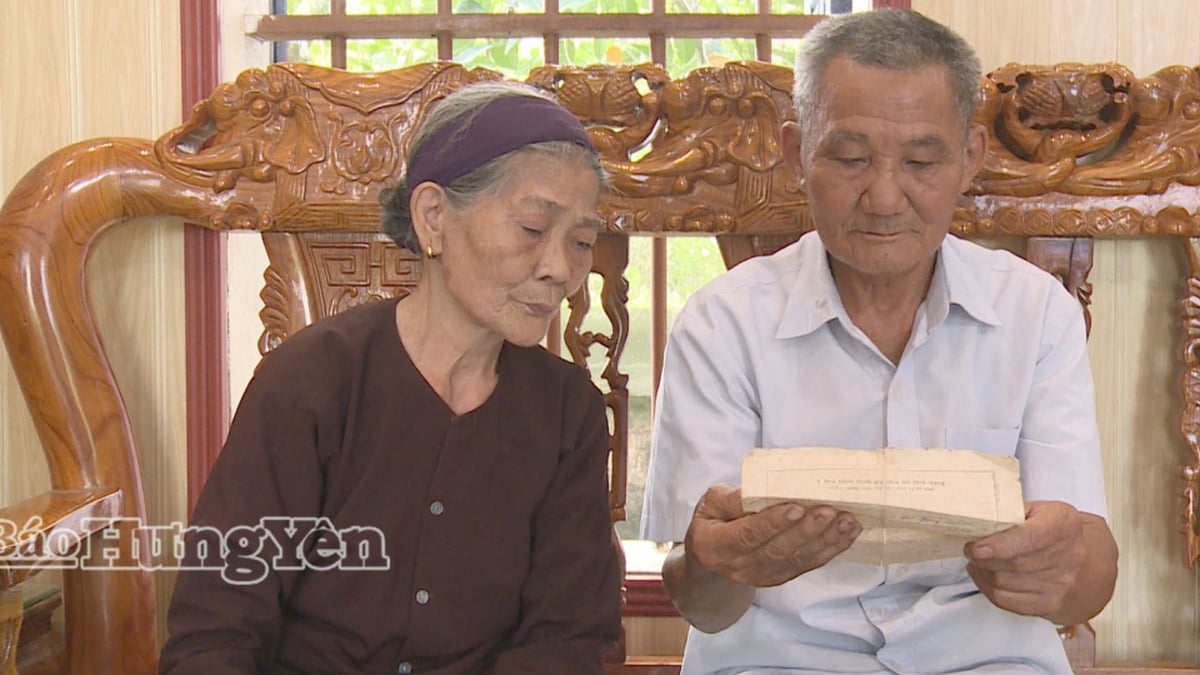
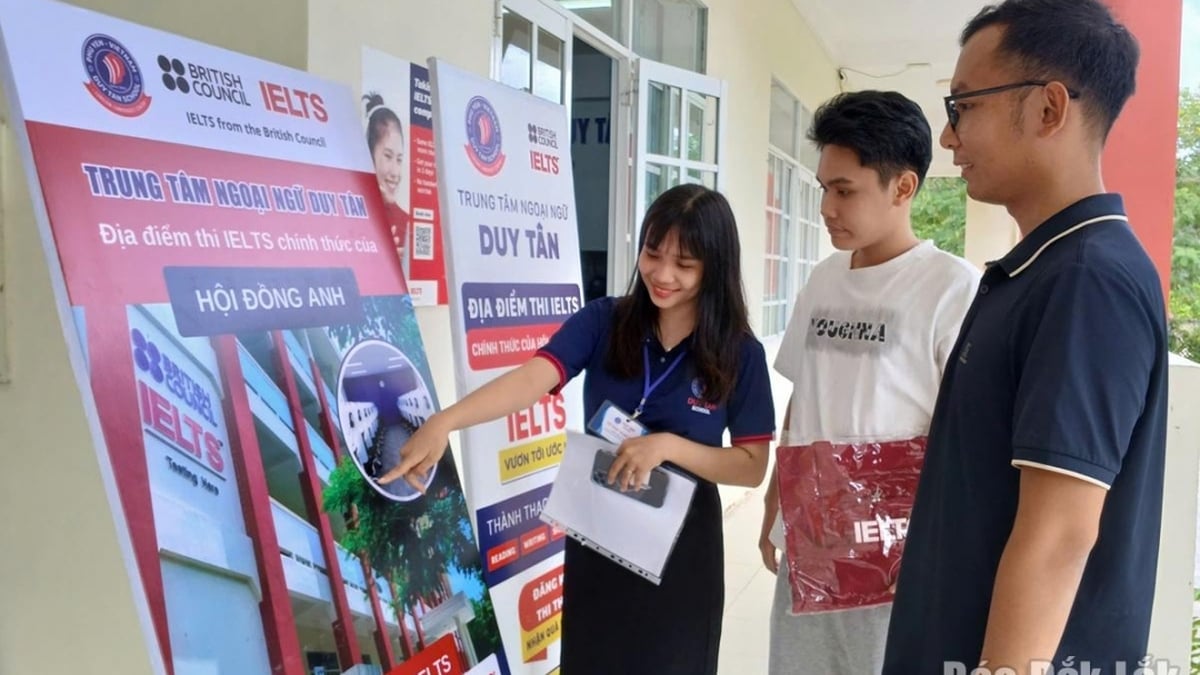
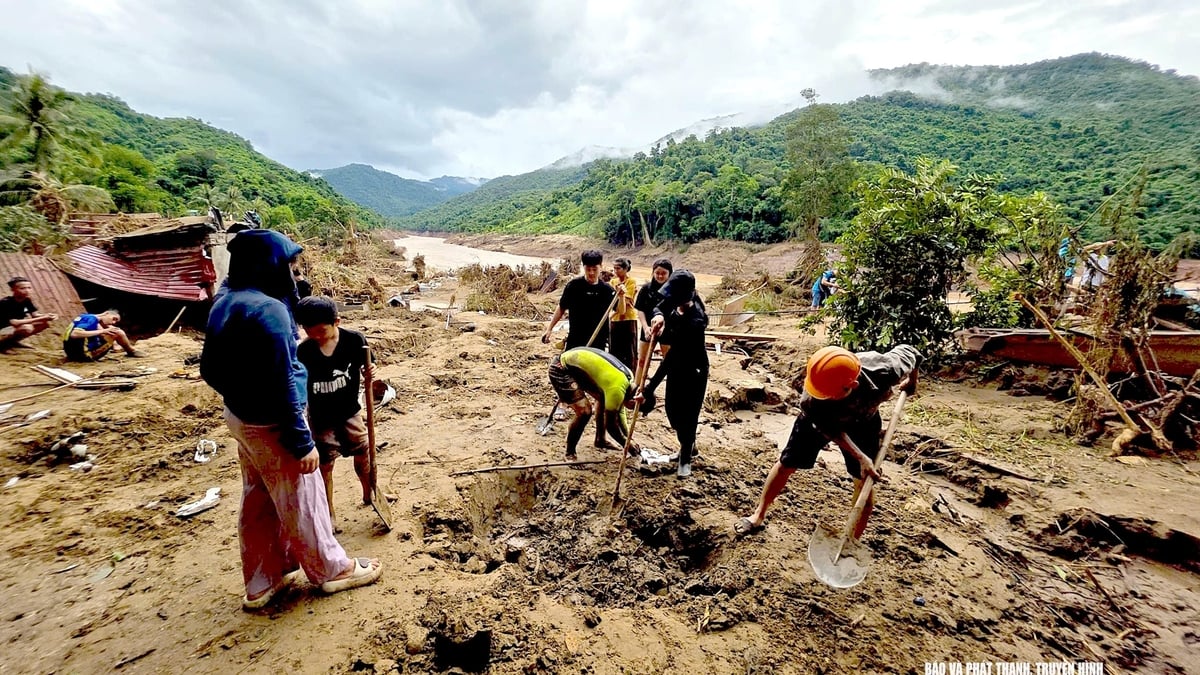
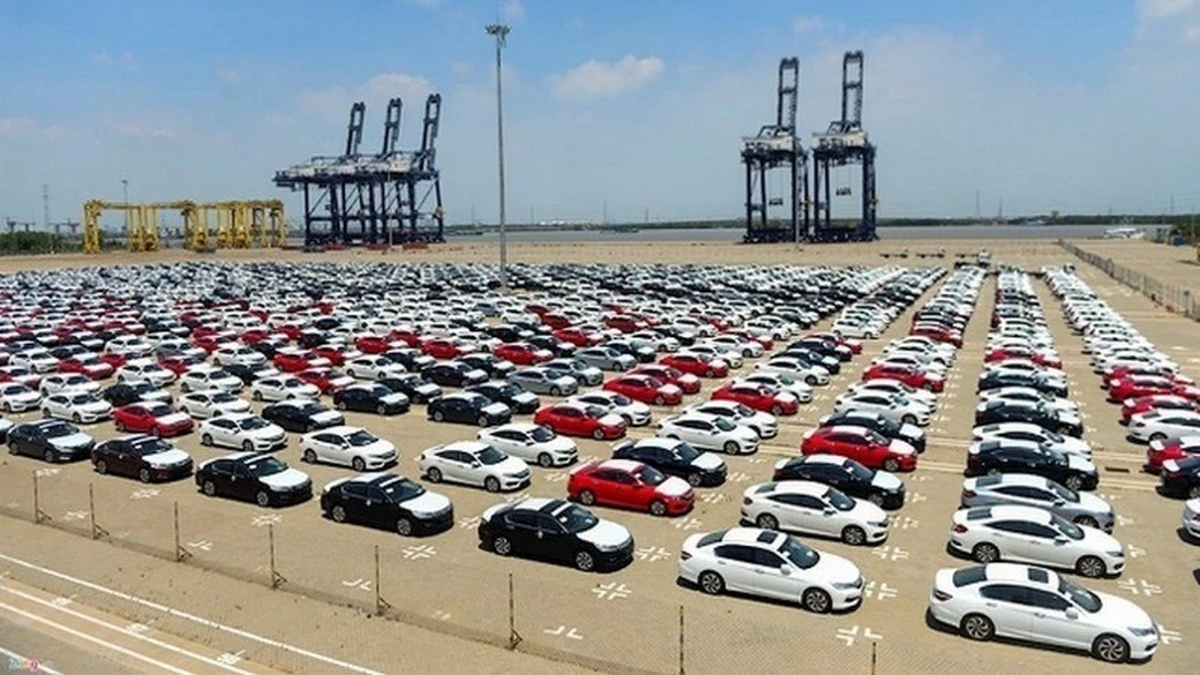
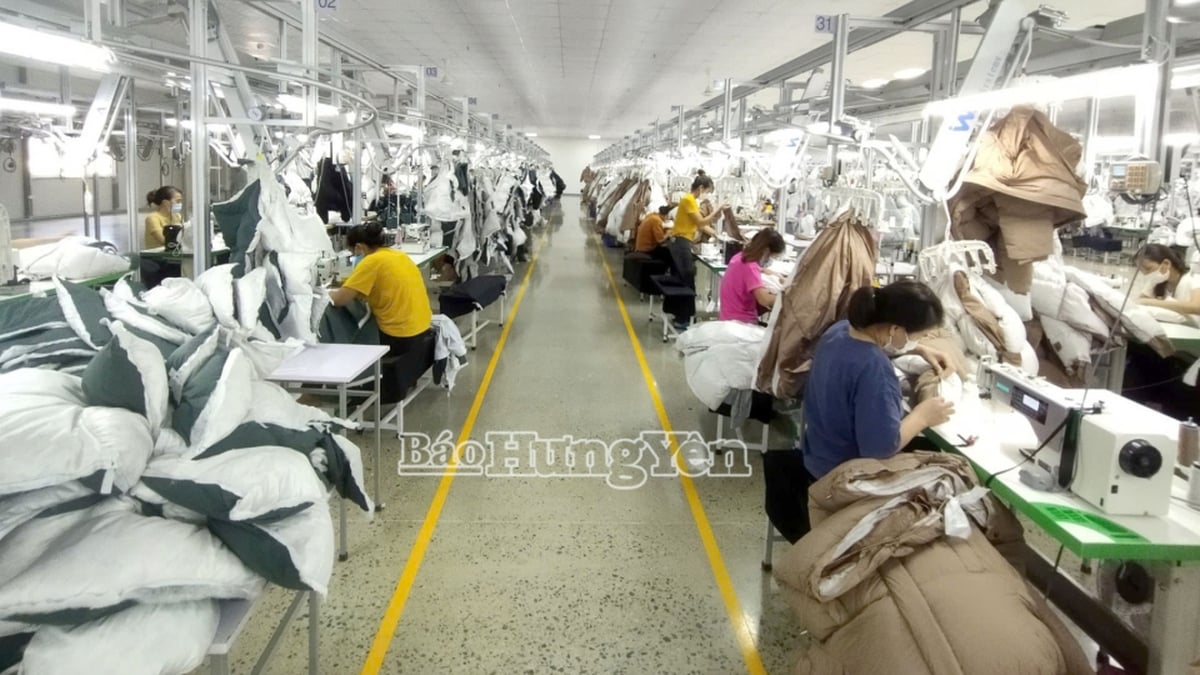
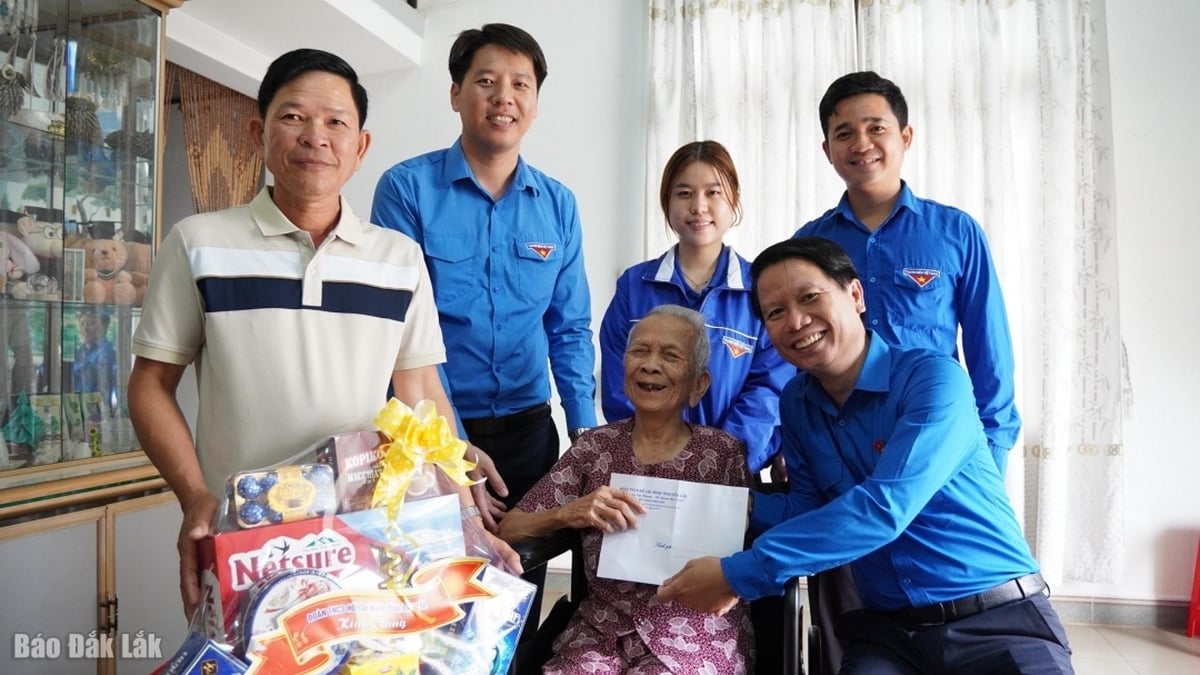
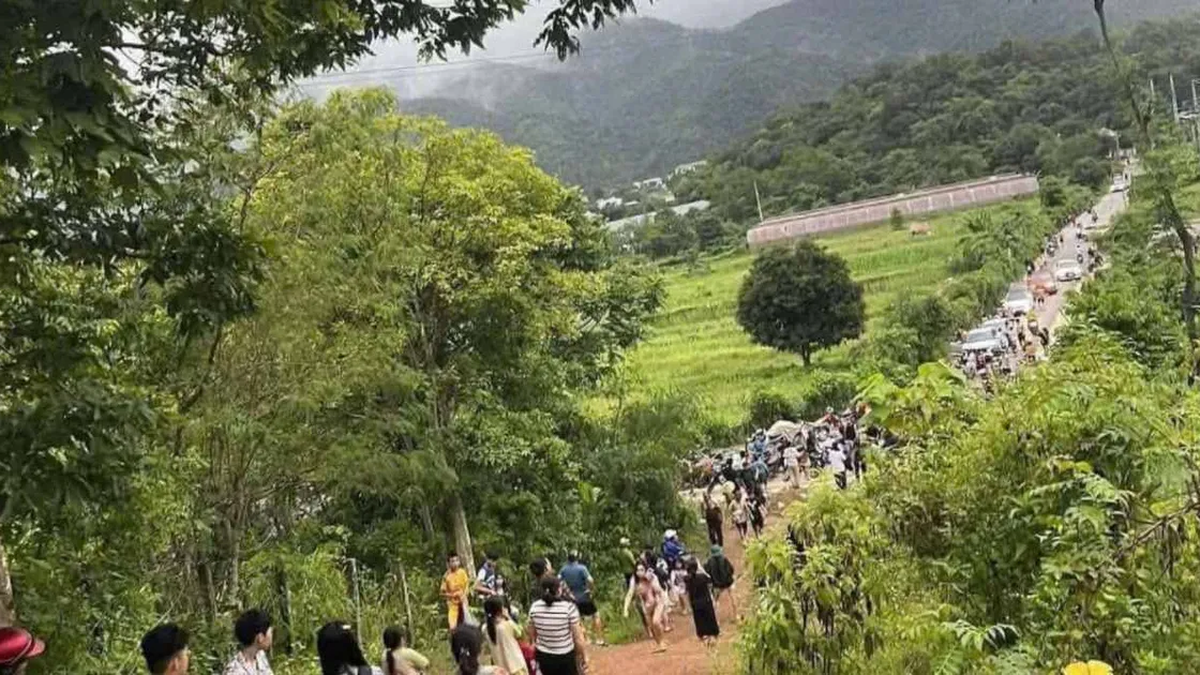
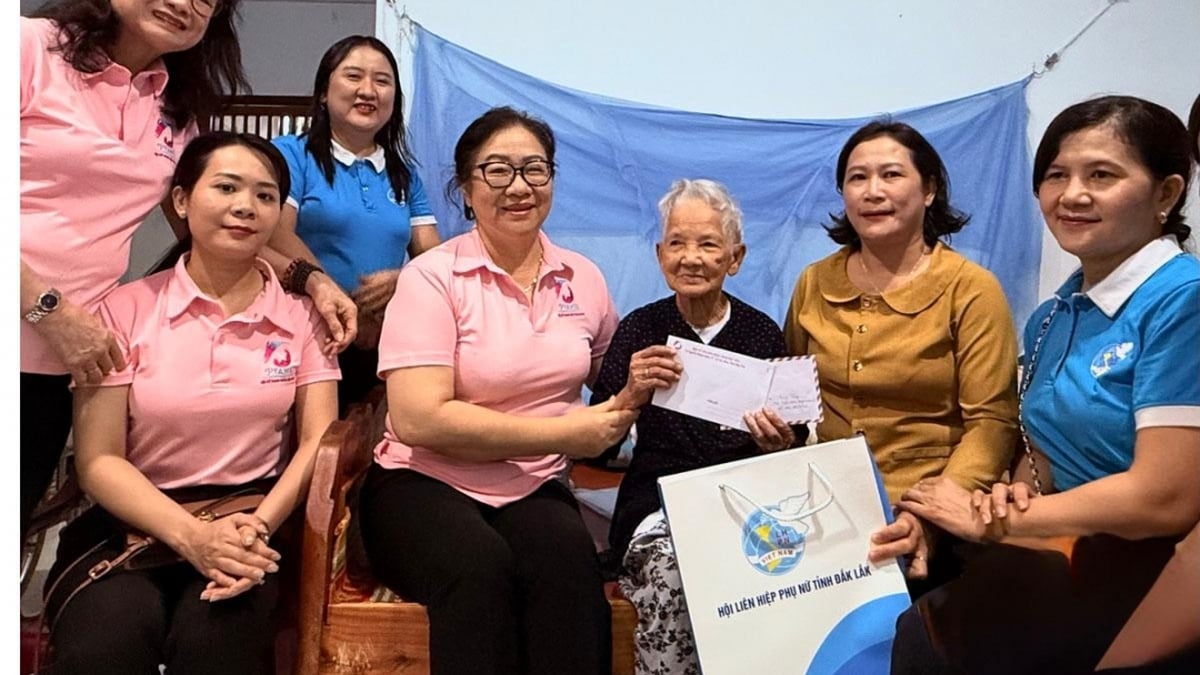

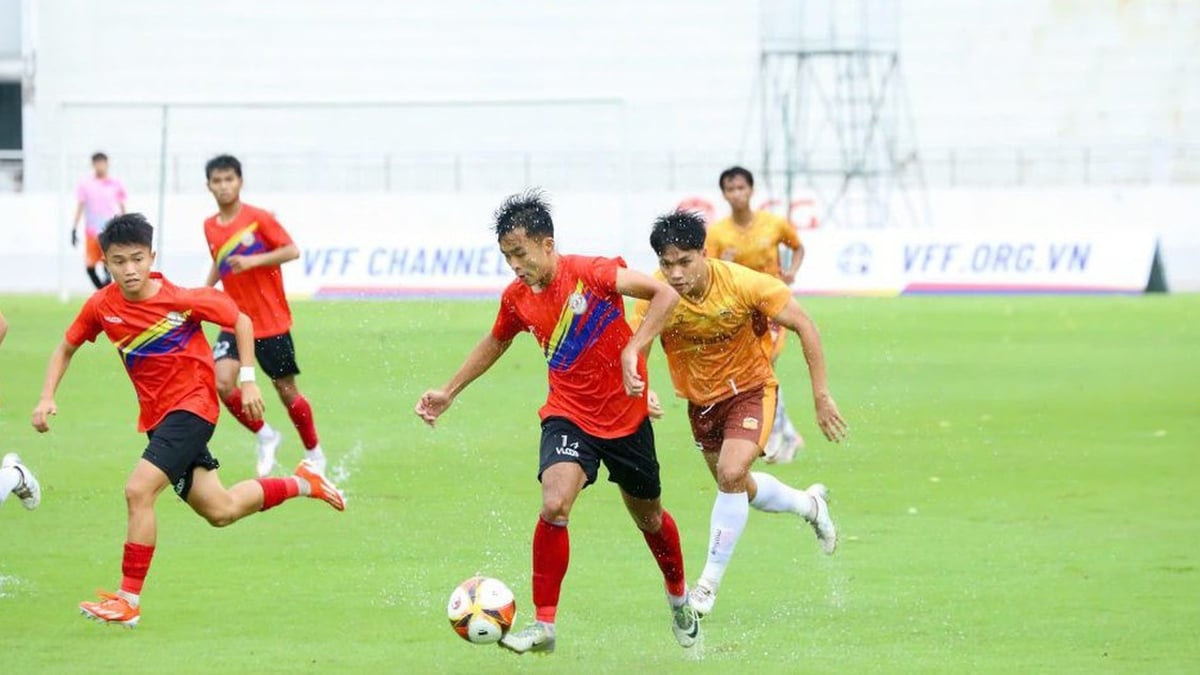






















































































Comment (0)